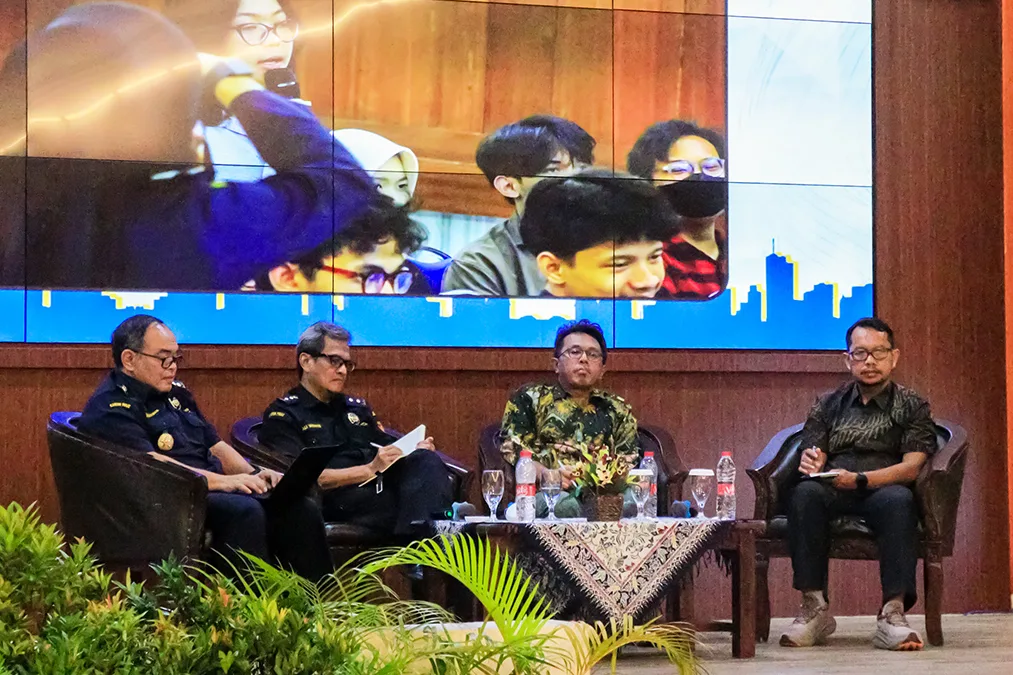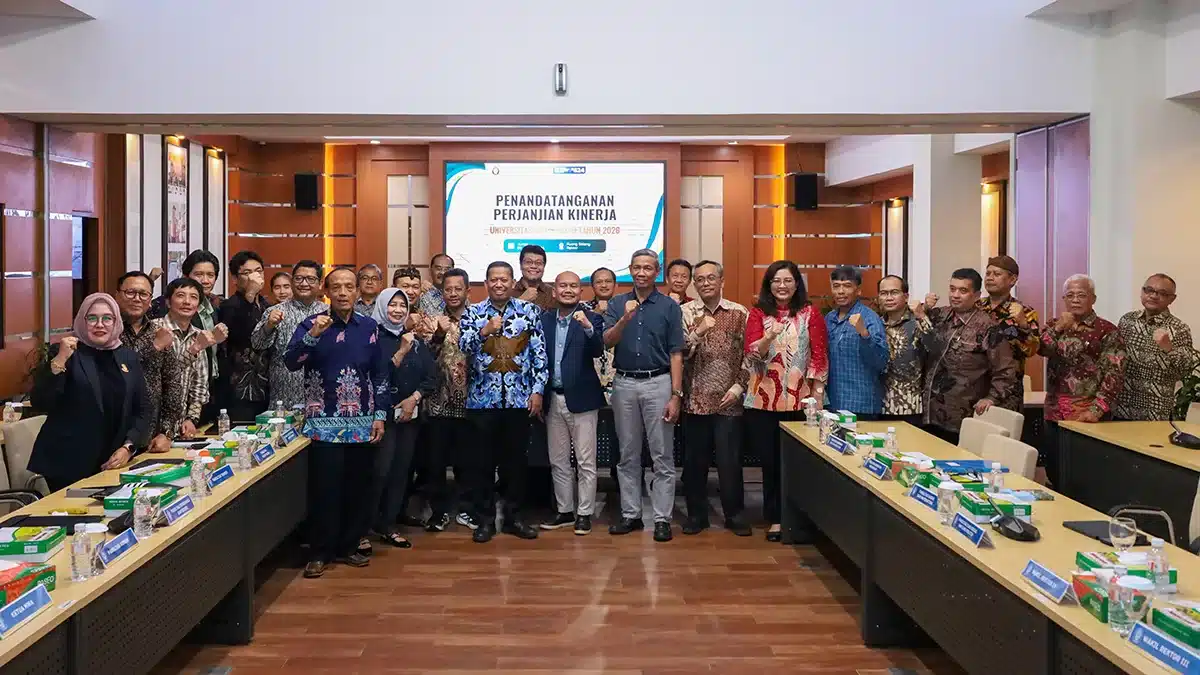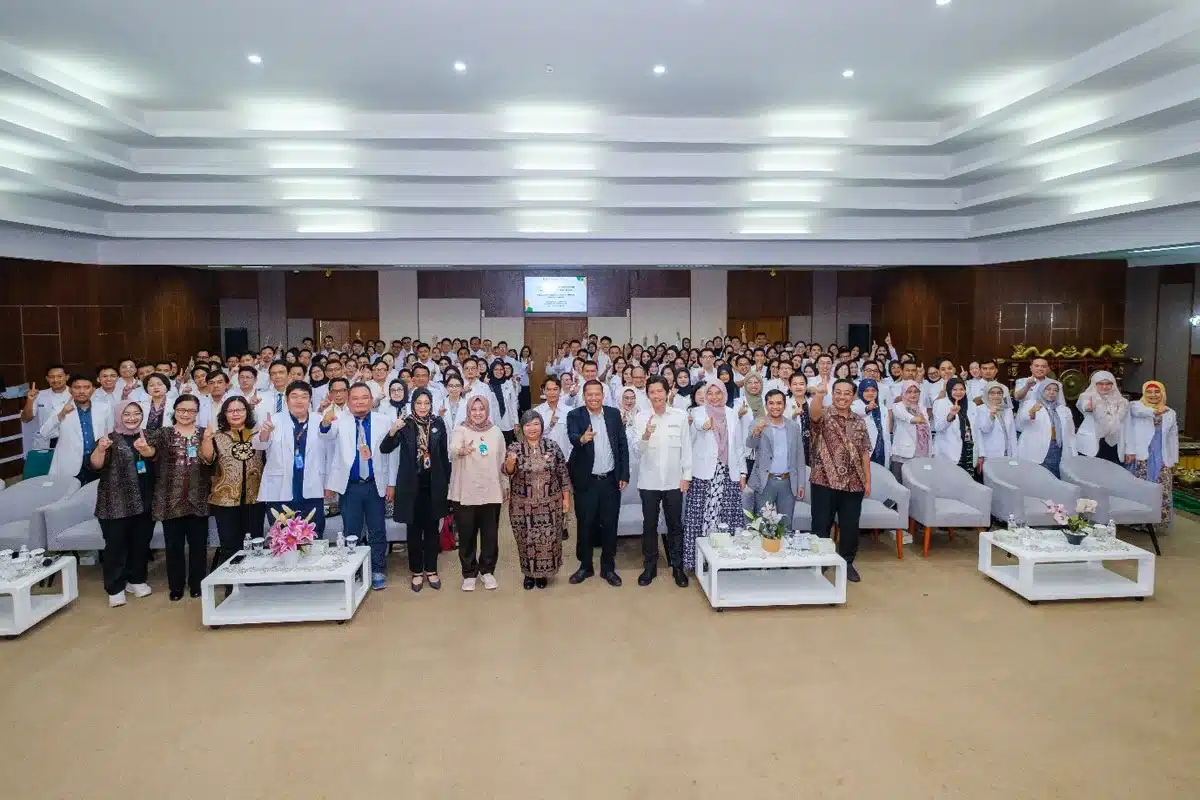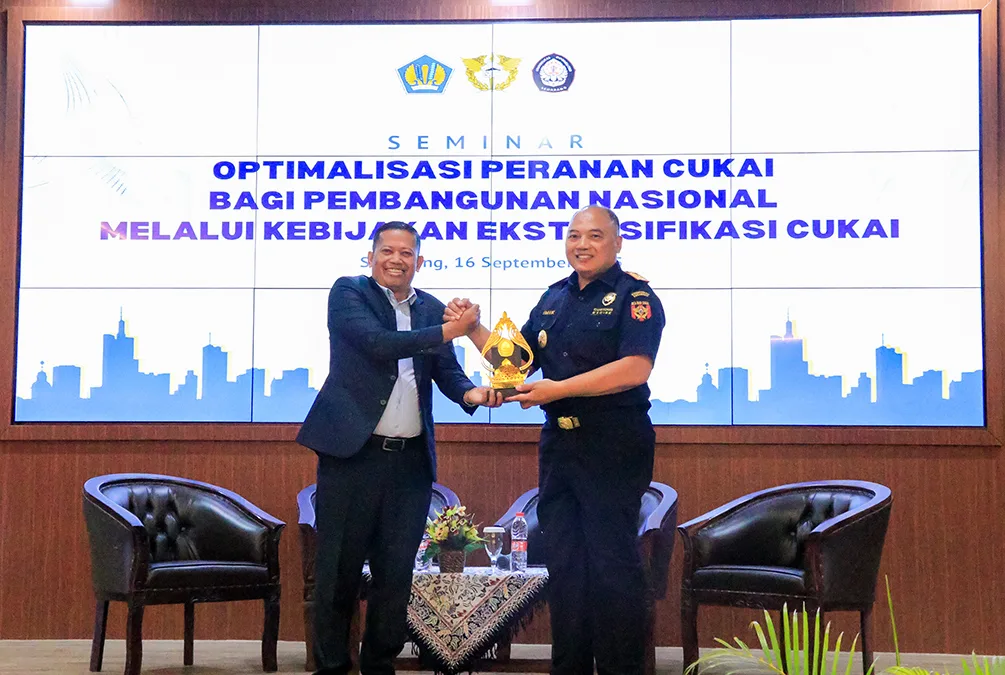SEMARANG (September 16, 2025) – Universitas Diponegoro (UNDIP), through its Directorate of Innovation, Downstreaming, and Collaboration, teamed up with the Dirjen Bea dan Cukai (Directorate General of Customs and Excise) to hold a seminar titled “Optimizing the Role of Excise in National Development Through Excise Extensification Policy.” The seminar took place at the Entrepreneurship Hall of the Faculty of Economics and Business, UNDIP Tembalang Campus, Semarang.
The event featured speakers from the Directorate General of Customs and Excise and UNDIP academics. Discussions focused on the role of excise in national development, strategies for excise extensification, and public policy issues related to excise on Sugar-Sweetened Beverages (SSB).
The Head of the Jawa Tengah and Yogyakarta Regional Office of the Directorate General of Customs and Excise attended and delivered remarks.
“Optimization and extensification are terms used in excise. This lecture is a good moment to strengthen our understanding of tax and excise, which is vital for national development. Our country’s funding mainly comes from the state budget (APBN), with the largest share coming from tax revenues and non-tax state revenues,” he explained. He added that excise is essentially a restriction through the imposition of tariffs as state revenue. “This restriction is one of the sources of state income,” he said.
He also outlined three types of excisable goods in Indonesia, starting with the tobacco excise. “One familiar form is the cigarette excise. The government affixes excise stamps on every cigarette pack. Cigarettes without excise stamps are illegal,” he emphasized. The other two excisable goods are electronic cigarettes and ethyl alcohol (alcoholic beverages containing 5%–70% alcohol), he added.
In the past three years, excise revenue has contributed IDR 224 trillion to state revenue, with 95% coming from tobacco. In Jawa Tengah Province, Kudus Regency is the largest contributor to the tobacco excise sector due to the number of cigarette factories located there. The Ministry of Finance is seeking to reduce dependence on tobacco excise by implementing an excise extensification policy—adding new types of excisable goods.
Rector of UNDIP, Prof. Dr. Suharnomo, S.E., M.Si., welcomed and thanked the speakers for their valuable insights on the role of excise in national development.
Meanwhile, Gunawan Tri Wibowo, Head of the Subdirectorate of Excise Potential and Compliance of Excisable Goods Entrepreneurs, discussed the general concept of excise. He explained that the duties and functions of Customs and Excise include facilitating trade and industry, protecting the public, and optimizing state revenue.
“In terms of trade facilitation, we see that in Jawa Tengah—such as Kendal and Batang Regencies—have seen growth in Special Economic Zones (SEZs). This regulation is one of the incentives provided by the government through Customs and Excise to ease export and import activities. These facilities range from fiscal incentives such as exemption and suspension of VAT and income tax, to procedural facilities such as licensing,” he said.
These efforts are part of Customs and Excise’s role in enhancing Indonesia’s industrial competitiveness, facilitating the smooth flow of goods, and promoting economic growth.
He also elaborated on four philosophical bases of excise:
- Sin Tax, imposed on socially undesirable goods,
- Pigouvian Tax, as compensation for negative externalities, and
- Goods and Services Tax, also known as a “luxury tax” on goods or services providing comfort or pleasure.
Ali Winoto, Head of the Excise Potential Section, presented a discussion on the extensification of excise on Sugar-Sweetened Beverages (SSB). “Currently, ranks fifth globally in the number of people with diabetes, with 20.4 million cases recorded in 2024,” he noted.
He explained the objectives of the SSB excise, including encouraging consumers to shift to healthier products; pushing producers to reformulate products with lower sugar content; preventing an influx of imported SSB, since Indonesia has not yet imposed excise on SSB, while other countries have; increasing fiscal capacity to support health spending, as excise can serve as a revenue instrument to fund health programs in addition to being a control measure.
The proposed scope of SSB excise would include bottled tea, packaged fruit juice, energy drinks, powdered drink sachets, and more.
The final presentation, “SSB Excise and the Paradox of Public Policy,” was presented by Prof. Ahmad Syakir Kurnia, a lecturer from UNDIP’s Faculty of Economics and Business. He highlighted the paradox in public policy, “Cigarettes and sugar-sweetened beverages cause diabetes and obesity, yet consumption is tolerated for the sake of state revenue.”
He argued that the government must adopt approaches to limit SSB. Cigarettes, though known to be harmful, cannot be entirely banned or restricted because doing so would disrupt the economy, create black markets, and trigger social resistance. Both cigarettes and SSB have become part of the public’s lifestyle, and SSB contributes 38% to the industrial GDP according to 2023 data from the BPS.
“Excise is regressive and tends to burden low-income communities, many of whom consume foods and drinks with added sugar. This problem creates a dual burden—both fiscal and health-related,” Prof. Ahmad said.
He concluded that the strategic solution lies in strong health regulations and comprehensive public education, rather than merely adding to the state’s revenue sources.
Through this seminar, students were expected to gain new insights into the importance of excise in national development and better understand government policies that directly impact society and the national economy. (Public Communication/ UNDIP/ Syahra ed. Ut)










